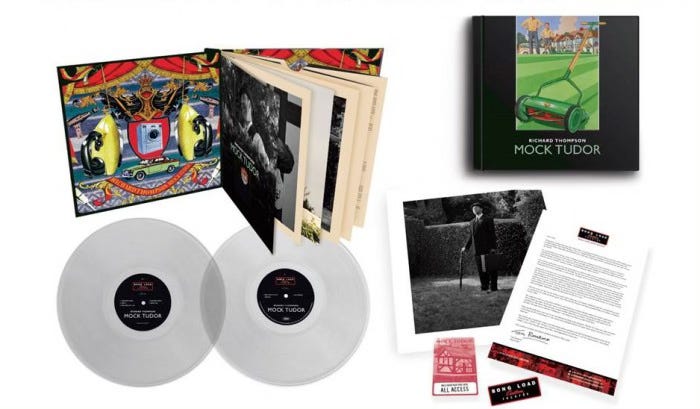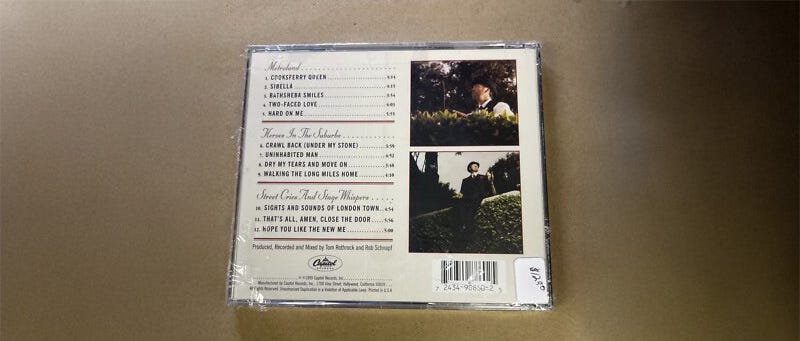📚 Homework Alert: Mock Tudor by Richard Thompson!
Richard Thompson’s suburban concept album gets the full treatment—stream it, study it, share your hot takes
If you grew up tuning in to guitar heroes and poetic songwriters, Richard Thompson’s name is probably somewhere in your personal playlist DNA. As a founding force in British folk-rock, his guitar is both razor-sharp and tender, his lyrics clever yet deeply relatable. Mock Tudor (from 1999) feels like flipping through a well-worn photo album—full of stories from English suburbia and the bittersweet joy of growing up, with each track mixing folk storytelling and electric energy in ways that will hit home for anyone who remembers the sound of the ’80s and ’90s.
This album spins tales of lost youth and lived-in neighborhoods with a sound that bridges classic jangle-pop, folk grace, and just enough grit to feel real. You’ll hear catchy hooks, sly humor, and bursts of guitar—sometimes ringing, sometimes raw—that make every listen feel both comfortingly familiar and totally new.
Critics have praised Mock Tudor as “one of his most dynamic and muscular works” with “enthusiasm and energy”, while Rolling Stone noted Thompson’s “extraordinary originality” and “spellbinding music”. However, some have questioned whether the nostalgic concept feels too calculated, or if certain tracks don’t quite match the album’s overall vision. The album was produced by Tom Rothrock and Rob Schnapf (known for their work with Beck and Foo Fighters), giving it a “scrappy immediacy” that some felt was a welcome change from Thompson’s previous work, while others wondered if it sacrificed some of his folk authenticity.
Your Homework Assignment
Listen to the Album:
Notice the drive of “Cooksferry Queen”, the nostalgia in “Walking the Long Miles Home”, and the longing threaded through “Sights and Sounds of London Town.”
Explore the Story:
Listen to Richard Thompson’s classic 1999 Fresh Air interview with Terry Gross where he discusses the album’s autobiographical elements and suburban themes
Explore the Green Man Review analysis of the album’s Baby Boomer nostalgia and ’60s musical influences
What Works and What Doesn’t?
What’s your take? Does the suburban concept album format serve the songs, or do some tracks feel forced into the theme?




